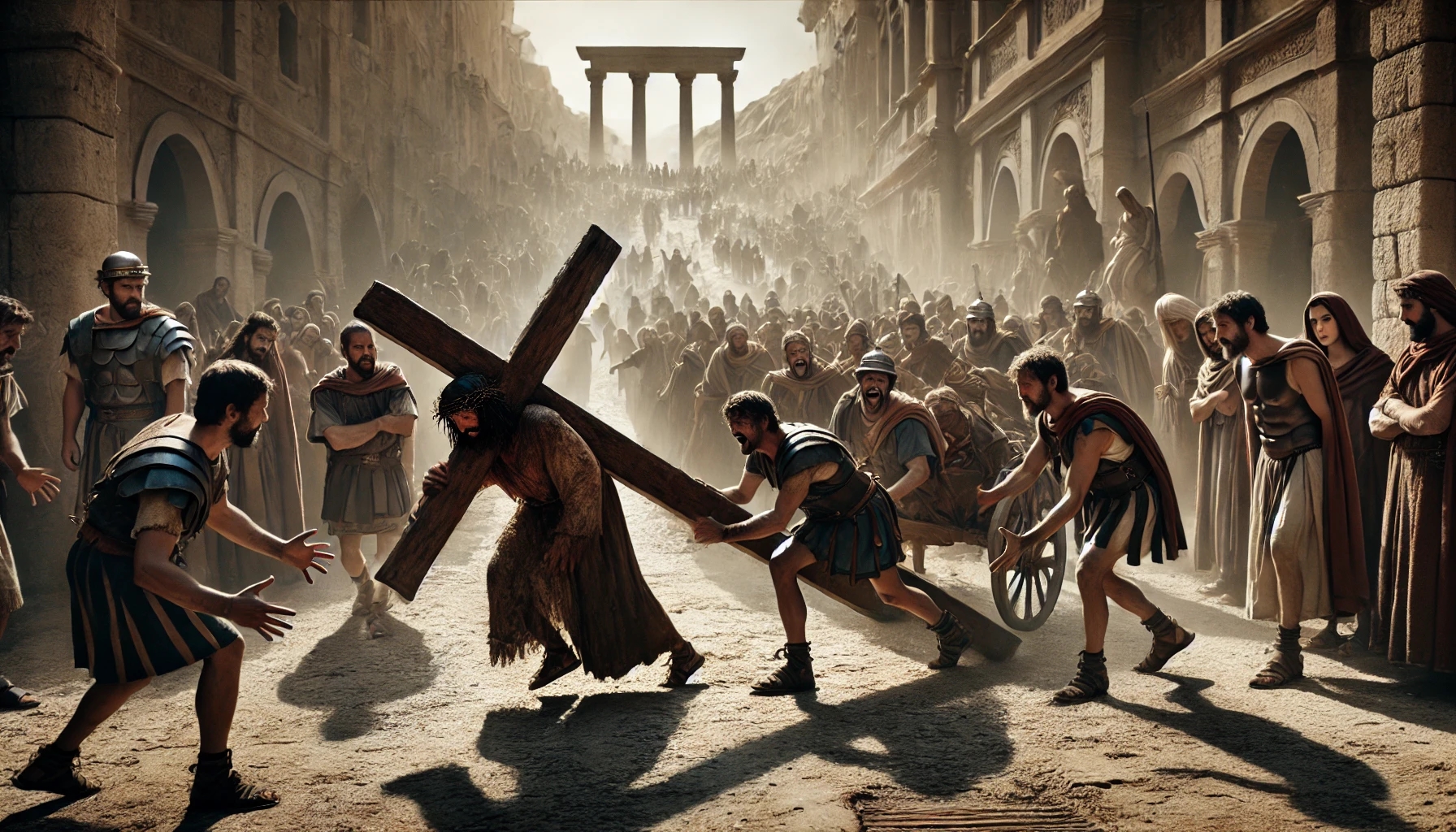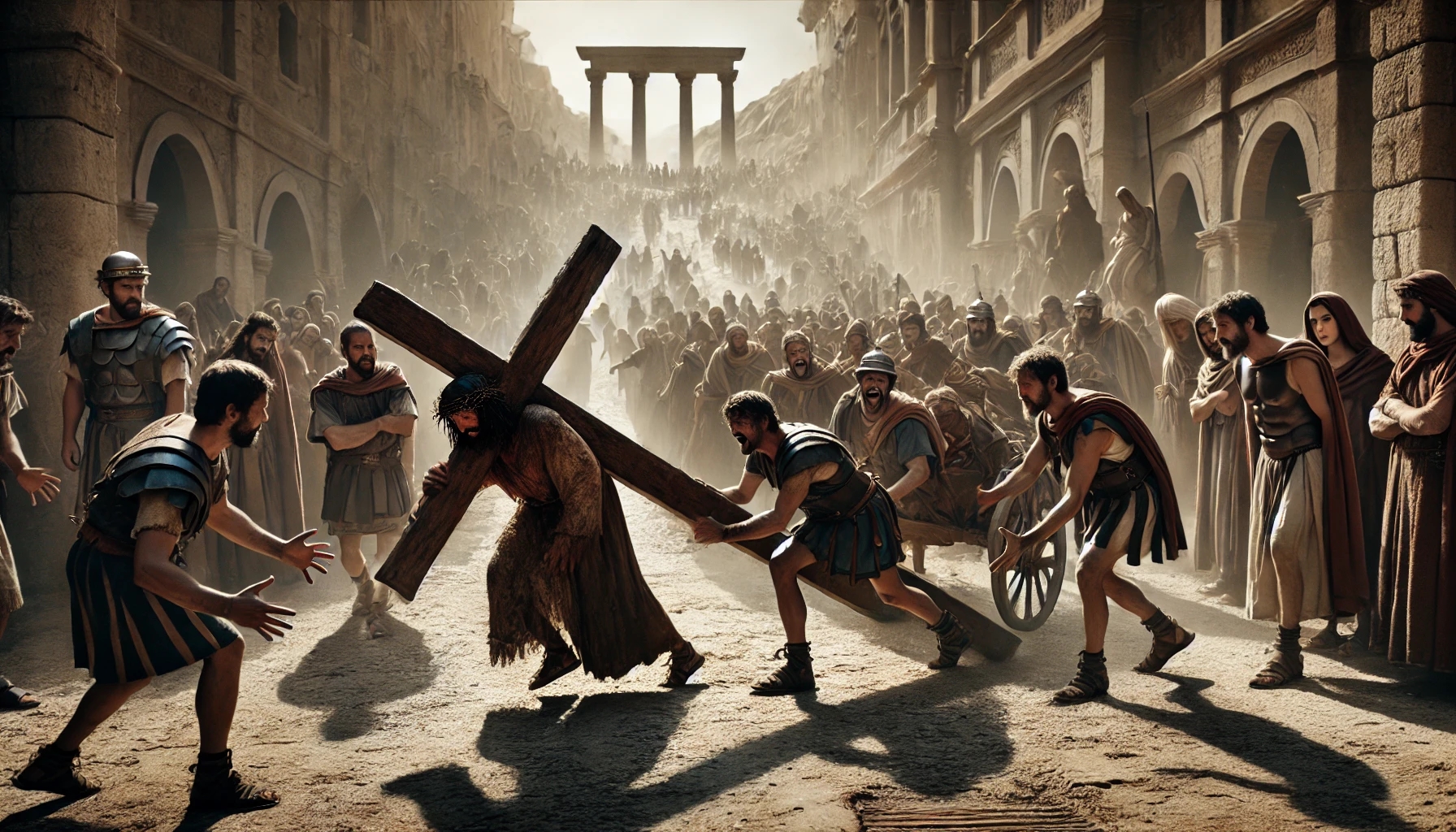December 7, 2024
DAILY BIBLE READING – Romans Chapter 13
1 Let every soul be subject unto the higher powers. For there is no power but of God: the powers that be are ordained of God.
2 Whosoever therefore resisteth the power, resisteth the ordinance of God: and they that resist shall receive to themselves damnation.
3 For rulers are not a terror to good works, but to the evil. Wilt thou then not be afraid of the power? do that which is good, and thou shalt have praise of the same:
4 For he is the minister of God to thee for good. But if thou do that which is evil, be afraid; for he beareth not the sword in vain: for he is the minister of God, a revenger to execute wrath upon him that doeth evil.
5 Wherefore ye must needs be subject, not only for wrath, but also for conscience sake.
6 For for this cause pay ye tribute also: for they are God’s ministers, attending continually upon this very thing.
7 Render therefore to all their dues: tribute to whom tribute is due; custom to whom custom; fear to whom fear; honour to whom honour.
8 Owe no man any thing, but to love one another: for he that loveth another hath fulfilled the law.
9 For this, Thou shalt not commit adultery, Thou shalt not kill, Thou shalt not steal, Thou shalt not bear false witness, Thou shalt not covet; and if there be any other commandment, it is briefly comprehended in this saying, namely, Thou shalt love thy neighbour as thyself.
10 Love worketh no ill to his neighbour: therefore love is the fulfilling of the law.
11 And that, knowing the time, that now it is high time to awake out of sleep: for now is our salvation nearer than when we believed.
12 The night is far spent, the day is at hand: let us therefore cast off the works of darkness, and let us put on the armour of light.
13 Let us walk honestly, as in the day; not in rioting and drunkenness, not in chambering and wantonness, not in strife and envying.
14 But put ye on the Lord Jesus Christ, and make not provision for the flesh, to fulfil the lusts thereof.
King James Version. Public Domain
Commentary
Introduction
Romans 13 is a central chapter of the New Testament that addresses the relationship of Christians to governmental authority and the significance of the law in the light of Christian love. In a time when Christians lived under Roman rule, Paul provided clear instructions on how believers should relate to governing authorities and what spiritual principles should guide earthly life. This chapter emphasizes not only the duty of submission to worldly powers but also the overarching importance of love as the fulfillment of God’s law.
Commentary
In Romans 13, Paul urges Christians to adopt an attitude of submission to governmental authority, as all authority is ordained by God. Government is not merely a secular institution but has a divine purpose: to reward good and punish evil. Verse 1 makes it clear that there is no authority apart from God’s will, and resistance to state power constitutes a rejection of God’s order.
Verses 3 and 4 highlight that the governing authority is a “servant of God,” tasked with promoting good and punishing disobedience. The state wields the sword, symbolizing its power to enforce punishment and uphold justice. For the individual, this means that by doing good, one not only secures the recognition of the authorities but also maintains a clear conscience before God.
Paul, however, emphasizes not only fear of punishment but also the obligation to submit for the sake of conscience (verse 5). Submission does not mean blind obedience but rather an acknowledgment of the divine order operating through the state. This order is manifested through the just administration of taxes, customs, and respect for authority (verse 7). It is about doing what is right in both earthly and heavenly senses.
In the later part of the chapter, verses 8 to 10, Paul shifts focus to speak of love as the fulfillment of the law. Whoever loves has fulfilled the law, as God’s commandments are centered on love for God and neighbor. Love, therefore, forms the foundation of a godly life that aligns with divine commands and respects others.
Finally, in verses 11 to 14, Paul calls Christians to live in the light of the coming day. Since salvation is near, they should cast off the works of darkness and live in the “armor of light.” This entails living a life shaped by the hope of Christ’s return and distancing oneself from worldly temptations.
Summary
Romans 13 teaches that all governmental authority is instituted by God and that Christians should submit to it, not only out of fear of punishment but also for conscience’s sake. The state is tasked with rewarding good and punishing evil. The true expression of fulfilling the law, however, is love, which respects and honors others. Paul encourages Christians to live in the light of the coming day, leading a life of purity and hope for Christ’s return. The attitude of love, respect for order, and pursuit of a virtuous life are central themes of this chapter, which explores the relationship between God’s will and societal structures.
![]()

WEEKLY SPIRIT OF PROPHECY READING – Ellen White | The Desire of Ages
Chapter 78—Calvary
This chapter is based on Matthew 27:31-53; Mark 14:20-38; Luke 23:26-46; John 19:16-30.
Read online here
Commentary
Introduction
The chapter on Golgotha is a central passage in Christian theology, as it represents the climax of the redemption story. The crucifixion of Jesus is detailed in the Gospels of Matthew, Mark, Luke, and John, as well as in other biblical references such as Hebrews 13:12 and Galatians 3:13. It becomes clear here that Jesus suffered and died outside Jerusalem as the spotless sacrifice for the sins of humanity. His love, patience, and obedience even in the worst agony are expressions of His divine nature and His mission to redeem humanity. Golgotha is more than a historical fact—it is the place where God’s plan of redemption was fulfilled.
Commentary
The events of Golgotha, as described in the Gospels, unfold the dramatic and spiritual significance of Jesus’ death. They reveal both the cruelty of humanity and the infinite love of God.
The Road to Golgotha
Jesus was accompanied by a crowd to the place of execution. His cross, originally intended for Barabbas, was imposed upon Him, even though He was physically and spiritually exhausted from the events of the night. His weakness underscores His complete humanity, while His willingness to carry the cross demonstrates His divine love. Simon of Cyrene, a random passerby, was forced to carry the cross, and this encounter changed his life. This episode shows that even in His weakness, Jesus inspires people to take up their own crosses.
The Crucifixion
Jesus was crucified outside the city walls, in a place of shame and contempt, fulfilling Old Testament prophecies. The account emphasizes the fulfillment of Scripture, such as the division of His garments (Psalm 22). Jesus’ demeanor during the crucifixion is marked by remarkable patience and love. His prayer for the forgiveness of His tormentors shows that He died not only for the righteous but for all sinful humanity.
The Reaction of the People
The crucifixion reveals the state of humanity. Some mocked Jesus, challenged Him to come down from the cross, and thus demonstrated their blindness. Others, like the repentant thief, recognized His divinity and experienced forgiveness and hope. The women who accompanied Him showed compassion, but their mourning often reflected only human sympathy. Jesus directed their gaze to the future destruction of Jerusalem and God’s final judgments.
The Spiritual Work on the Cross
On the cross, Jesus bore the weight of the world’s sin. His cry, “My God, my God, why have you forsaken me?” reveals the anguish that comes with separation from God. He endured this separation so that humanity could find fellowship with God again. His final “It is finished!” declares the completion of His redemptive work. The curtain in the temple was torn in two, a symbolic act that opened access to God for all people.
The Earthquake and the Signs
Nature responded to the death of the Creator: darkness covered the land, an earthquake shook the region, and tombs were opened. These events were visible signs of the cosmic significance of what was happening. They reinforced the impression that Jesus’ death was not merely a human drama but a divine intervention in history.
The Theology of the Cross
The cross of Golgotha is the center of the Christian faith. Here, God’s wrath against sin and His infinite love become visible. Jesus bore the sin of the world and, through His sacrifice, restored the relationship between God and humanity. His death was not the end but the beginning of a new path of reconciliation and eternal life.
Summary
The Golgotha chapter portrays the crucifixion of Jesus as the climax of the salvation history. The journey to the skull place, the humiliations, the reactions of the people, and the cosmic signs at the cross emphasize the immense significance of His sacrifice. Jesus died outside the city walls as the spotless sacrifice to take upon Himself the sin of humanity and reconcile the world with God. His prayer for His tormentors, His promise to the thief, and His triumphant “It is finished!” testify to His divine love and the completion of His redemptive work. Golgotha stands for the unsurpassable love of God and is a call to embrace this love through faith.
Source: https://fulfilleddesire.net/7-11-2024-romans-chapter-13-believe-his-prophets/










